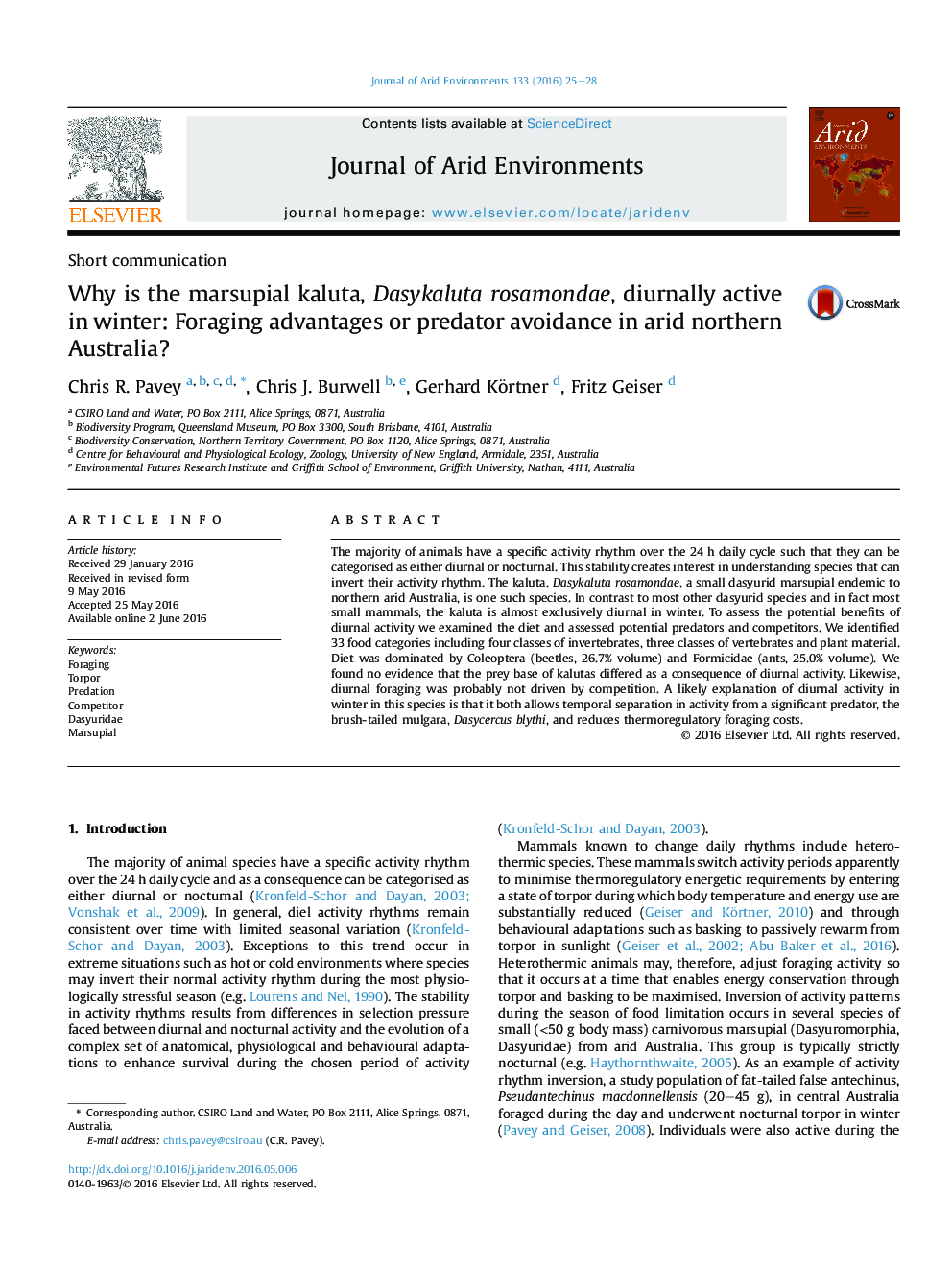| کد مقاله | کد نشریه | سال انتشار | مقاله انگلیسی | نسخه تمام متن |
|---|---|---|---|---|
| 4392709 | 1618226 | 2016 | 4 صفحه PDF | دانلود رایگان |
• Kaluta, a small marsupial from arid Australia is exclusively diurnal in winter.
• Diet does not differ noticeably from nocturnal foraging species in same family.
• The species is arthropodivorous with some vertebrate and plant material consumed.
• Diurnal activity reduces thermoregulatory foraging costs.
• Diurnal activity avoids temporal overlap with a predatory marsupial.
The majority of animals have a specific activity rhythm over the 24 h daily cycle such that they can be categorised as either diurnal or nocturnal. This stability creates interest in understanding species that can invert their activity rhythm. The kaluta, Dasykaluta rosamondae, a small dasyurid marsupial endemic to northern arid Australia, is one such species. In contrast to most other dasyurid species and in fact most small mammals, the kaluta is almost exclusively diurnal in winter. To assess the potential benefits of diurnal activity we examined the diet and assessed potential predators and competitors. We identified 33 food categories including four classes of invertebrates, three classes of vertebrates and plant material. Diet was dominated by Coleoptera (beetles, 26.7% volume) and Formicidae (ants, 25.0% volume). We found no evidence that the prey base of kalutas differed as a consequence of diurnal activity. Likewise, diurnal foraging was probably not driven by competition. A likely explanation of diurnal activity in winter in this species is that it both allows temporal separation in activity from a significant predator, the brush-tailed mulgara, Dasycercus blythi, and reduces thermoregulatory foraging costs.
Journal: Journal of Arid Environments - Volume 133, October 2016, Pages 25–28
